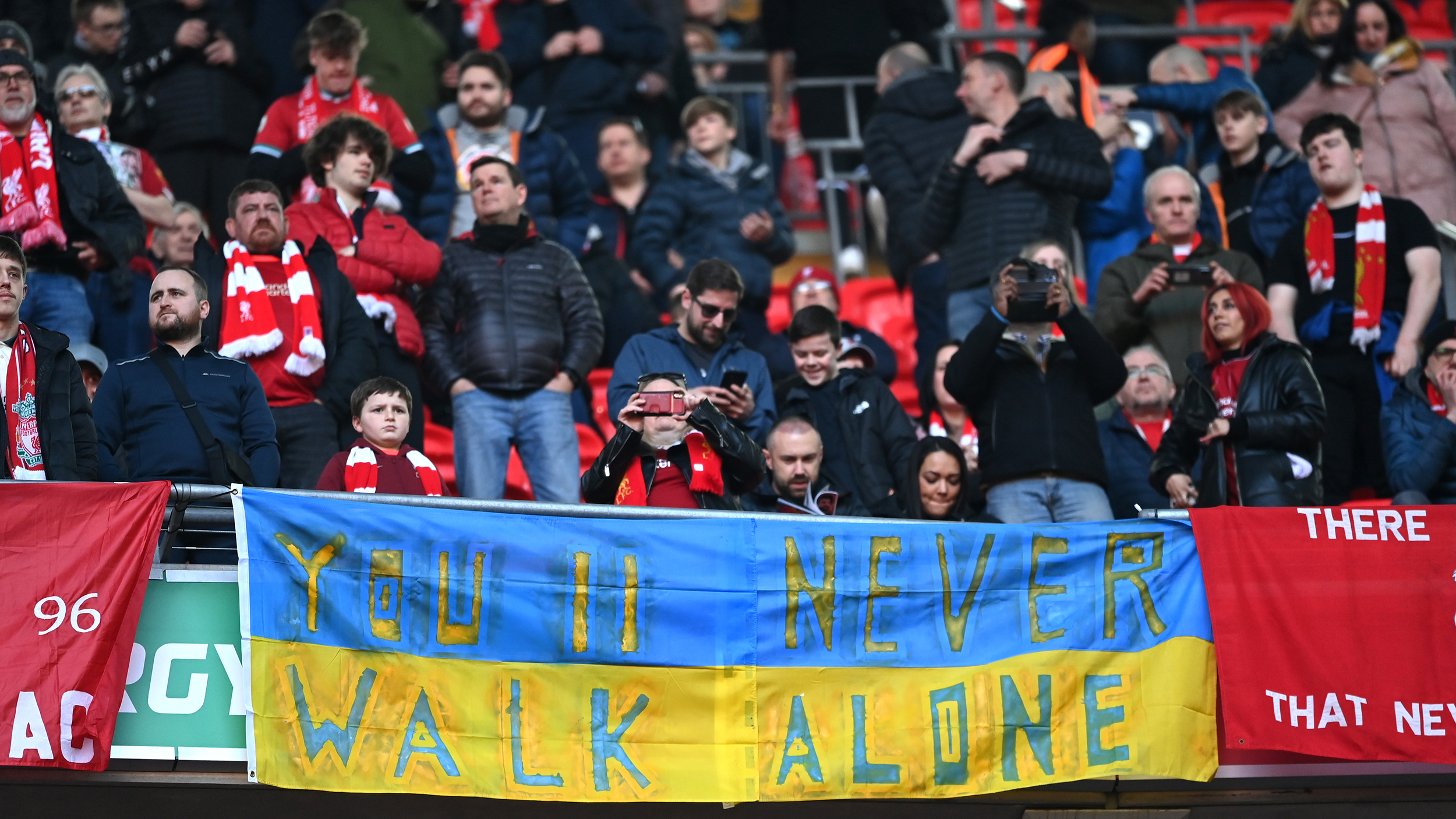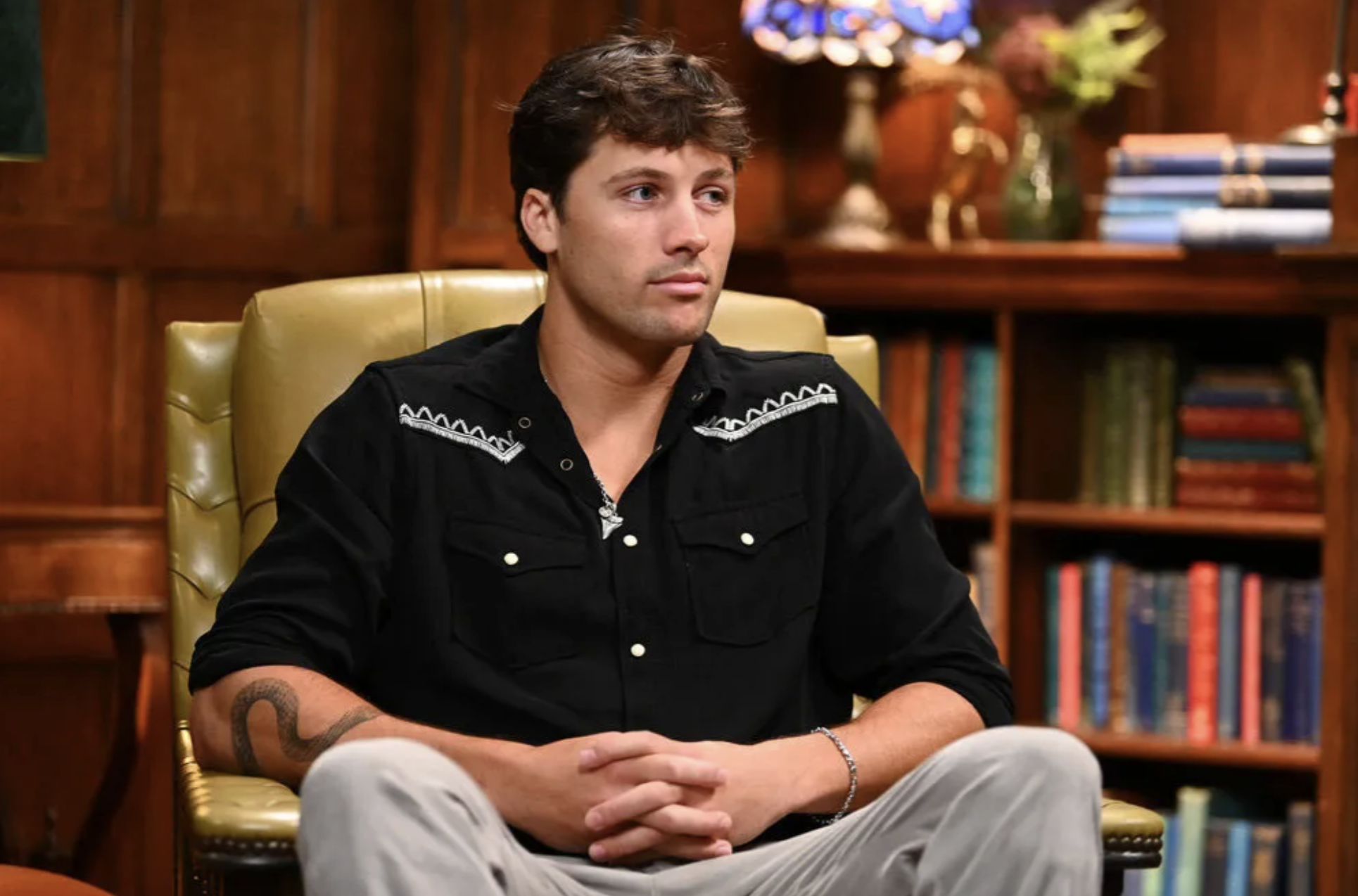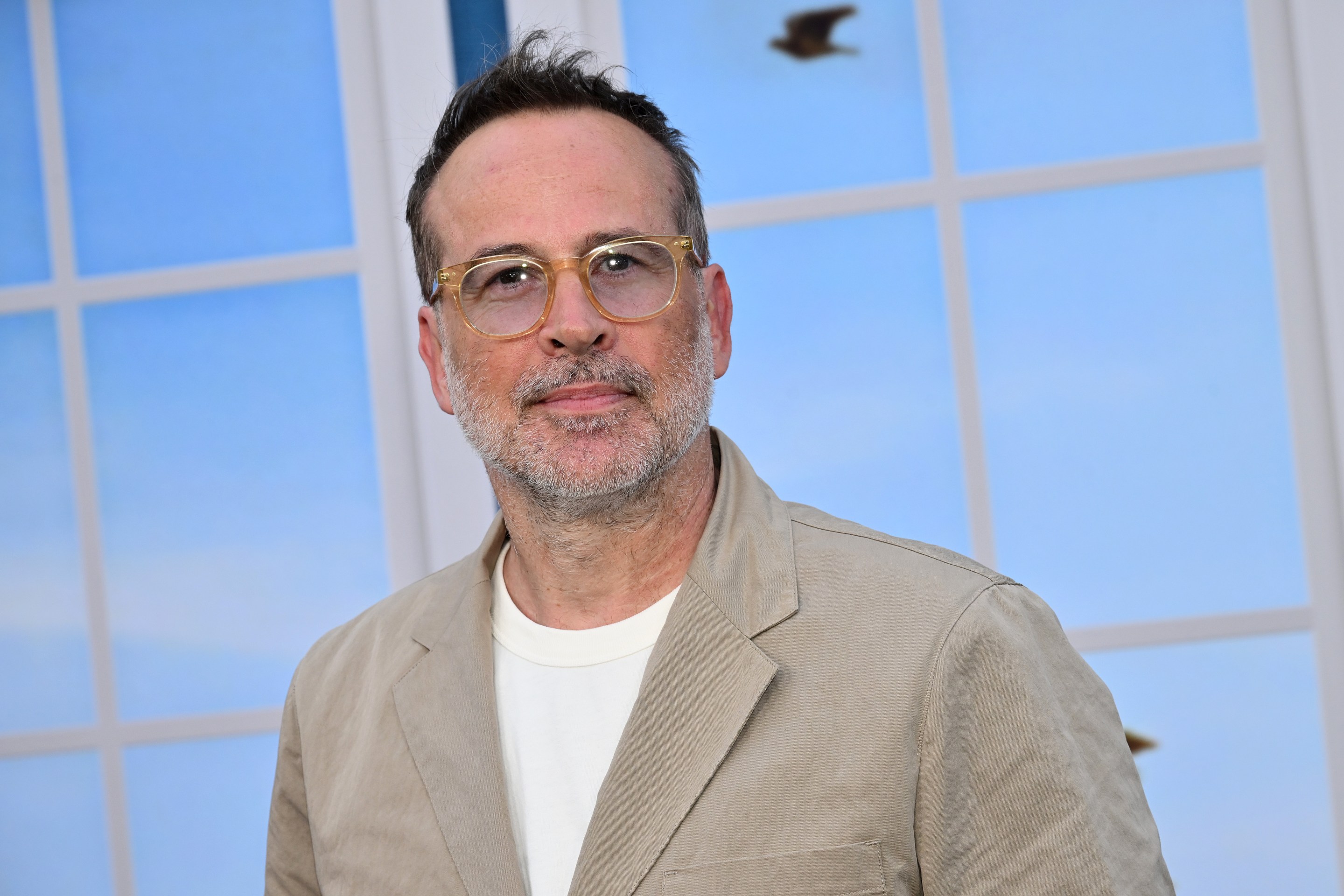Russia's invasion of Ukraine, and everything that surrounds it, is certainly bigger than sports. However, it's also inclusive of sports, as has been evident these past few days in the world of soccer especially. There have been a flurry of statements, reports, and actions, some bold and genuinely affecting, others craven and self-interested. Trying to parse what any of it actually means or how to feel about it has been difficult in a way that mirrors the fog that surrounds the war itself.
The game's critical response to Russia's aggression against Ukraine manifested itself quickly. As early as Thursday's Europa League matches, teams were unfurling "NO WAR" banners when taking the pitch. Soon after, larger conversations began about what to do with Russia as it pertained to matches involving the national team and the country's clubs.
Of pressing concern was what to do with Europe's final slate of 2022 World Cup qualifiers, which are scheduled for the end of March. There, Poland, Sweden, the Czech Republic, and Russia are matched in a four-team playoff, the winner of which will claim one of UEFA's remaining spots in next winter's tournament. In the semifinal round, Russia was set to host a match against Poland. If Russia advanced, it would then host the final against the winner of the other semifinal.
Not long after Russia's invasion of Ukraine, the Polish, Swedish, and Czech soccer federations all released statements condemning the actions of the Russian government and declaring that they would not play any soccer match on Russian soil. In response to that and growing pressure to act, FIFA imposed a first set of soccer sanctions on the country on Sunday. There, FIFA ruled that all of Russia's home international matches must be played on a neutral field, and mandated that the Russian team compete under the name Football Union of Russia, in the same way as the country competes in the Olympics as the Russian Olympic Committee. FIFA also noted that it would consider banning Russia from international competitions, including but not limited to the 2022 World Cup.
Those sanctions of FIFA's, though preliminary, were obviously insufficient. (Not surprising, coming from a governing body with a long and financially fruitful relationship of mutual legitimization with Russia in general and Vladimir Putin specifically.) Russia's potential qualifying opponents said so explicitly following FIFA's initial ruling. All three of Poland, Sweden, and the Czech Republic released statements saying that they would not play against Russia under any circumstances, regardless of where the match was held or what the Russian team was called. That added pressure has already had its intended effect on FIFA, which on Monday announced that Russia has been banned from all international competitions, leaving the country out of the World Cup qualifiers and the tournament itself unless the situation drastically changes between now and the March 24 matchday.
Confirmed: Russia are kicked out of world football. pic.twitter.com/wTDuGUWy6Y
— tariq panja (@tariqpanja) February 28, 2022
Included in FIFA's statement is UEFA's announcement that it too would bar all Russian clubs from its international competitions until further notice. In the immediate term, that means Spartak Moscow has been ejected from the Europa League round of 16, which gives its opponent, RB Leipzig, a bye into the quarterfinals. Before this, UEFA had already decided to move this season's Champions League final from its scheduled location of St. Petersburg to Paris's Stade de France.
There were still games to be played over the weekend, though, and displays of support for Ukraine took place all across Europe. On Thursday, a day after Russia began its invasion, Atalanta's Ukrainian midfielder Ruslan Malinovskyi scored in his club's Europa League victory over Olympiacos, and lifted his jersey to show a "NO WAR IN UKRAINE" shirt, while club captain Rafael Tolói embraced him:
A strong goal with an even stronger message.
— CBS Sports Golazo ⚽️ (@CBSSportsGolazo) February 24, 2022
Atalanta's Ukrainian midfielder Ruslan Malinovskyi unveiled a 'no war in Ukraine' shirt after scoring the first of two brilliant goals. pic.twitter.com/Oc4GPcUveA
Elsewhere, Manchester City and Everton played in a Premier League match on Saturday, and each team had a Ukrainian player suited up: City's Oleksandr Zinchenko and Everton's Vitaliy Mykolenko. The two players were clearly emotional both in warm-ups, greeting each other warmly, and during a pre-match show of support from both teams; cameras caught Zinchenko in tears as the stadium roared its support.
Zinchenko & Mykolenko sharing an embrace during the warm-up.
— SPORTbible (@sportbible) February 26, 2022
❤️🇺🇦pic.twitter.com/dZ6mfzLJqM
Heartbreaking to see Oleksandr Zinchenko in tears before kick-off as both teams show their support for Ukraine 💔 🇺🇦 pic.twitter.com/bZYNyziMSh
— Football Daily (@footballdaily) February 26, 2022
In Portugal, Benfica striker Roman Yaremchuk entered a match against Vitória as a substitute, leading to a show of support from the home crowd that brought the 26-year-old Lviv native to tears on the field:
Ukrainian footballer Roman Yaremchuk comes on as a substitute for Benfica in Lisbon. Watch what happens. pic.twitter.com/H2HCZCq9Os
— Piotr Zalewski (@p_zalewski) February 27, 2022
The possibility that the Russian invasion might be a brief, get-in-and-get-out operation at this point seems remote—a potential omen that the war could soon enter a new, much uglier and bloodier phase. The U.S. and the EU have announced unprecedented financial sanctions, including the freezing of Russia's central bank's assets, which could crater the country's economy. Peace talks between Ukrainian and Russian officials did open over the weekend in Belarus, with Chelsea owner Roman Abramovich reportedly participating as a mediator. Abramovich himself announced on Sunday that he would be handing over "stewardship" of Chelsea to the club's charitable foundation, which might mean nothing at all. Propaganda is flying around in every conceivable direction, indulged by nations with a vested interest in shaping the outcome and also random sports-blog dipshits.
Like war generally, it's nearly impossible to tell where this one will go, what it will mean, and who it will benefit—though it's a safe bet that the brunt of the pain will be felt by common men, women, and children of Ukraine and Russia, the pawns in the Great Game of geopolitics. Soccer can't fix any of the problems, and its attempts to react to it, even the more laudable ones, won't actually amount to much. Still, if there is an encouraging sign of the good out there in soccer, it could be seen where it matters: amongst the people themselves. The fans in the stadium showing their support for Ukrainian players, the teammates and coaches sharing their love, and the looks on the Ukrainian players' faces, deeply touched by it all.






